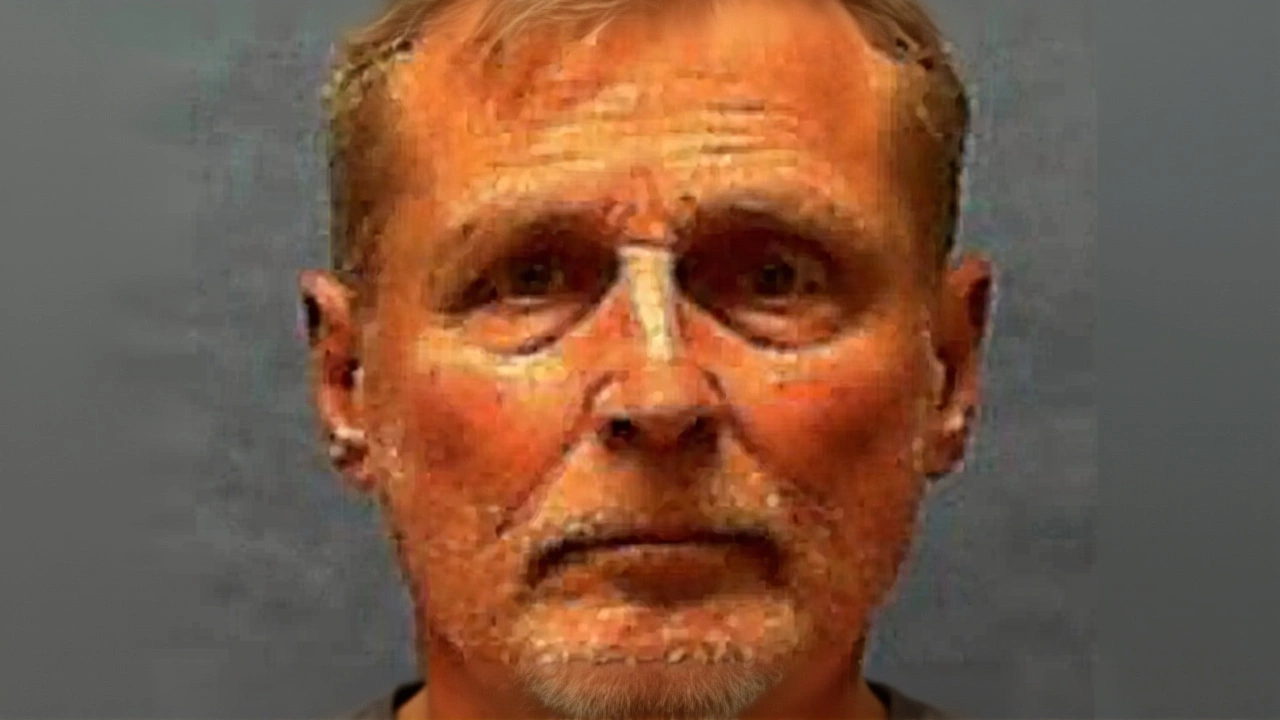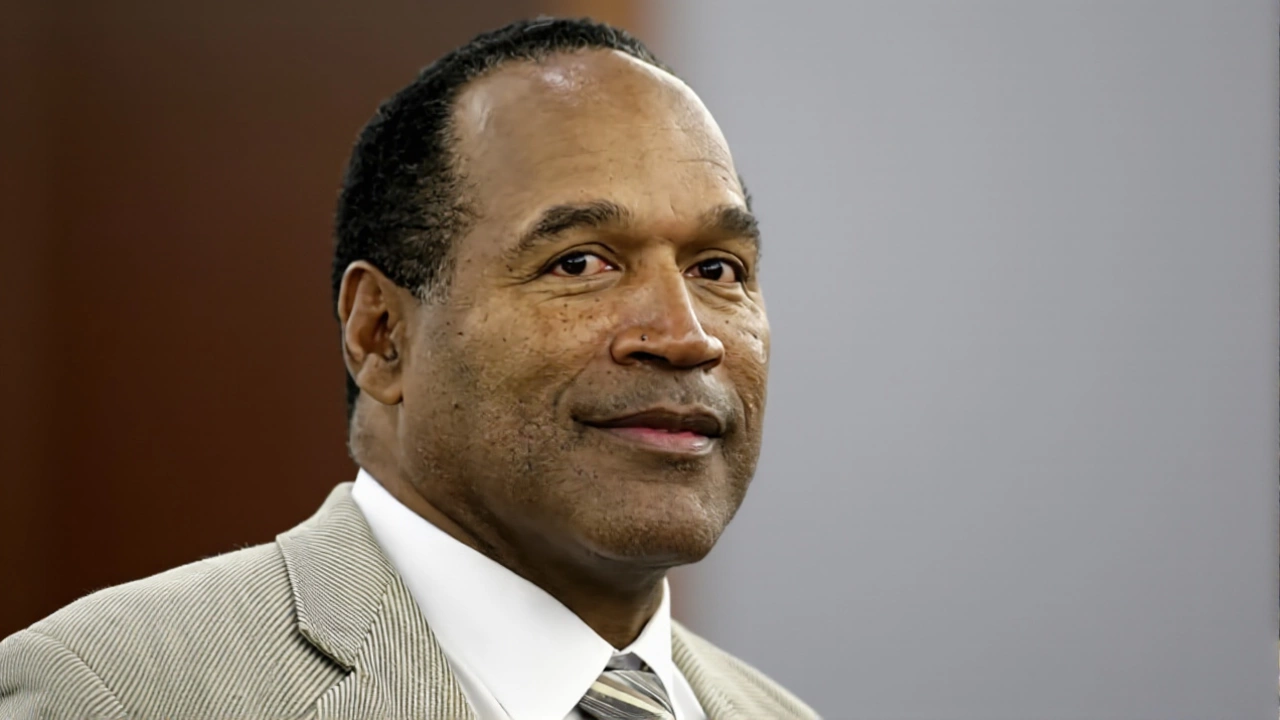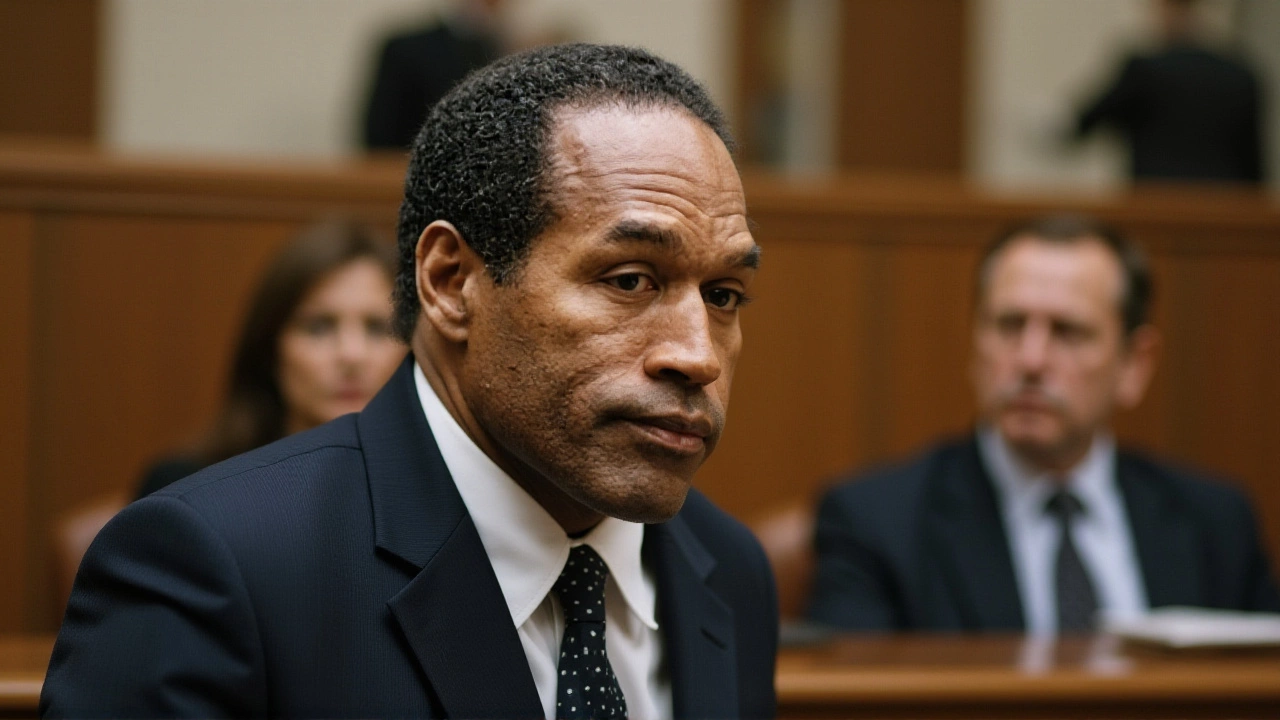On November 20, 2025, the estate of O.J. Simpson formally agreed to pay Fred Goldman $57.9 million — a staggering, long-awaited resolution to a legal saga that began with the brutal murders of Ron Goldman and Nicole Brown Simpson on June 12, 1994. The settlement, filed in Clark County, Nevada probate court, marks a stunning reversal by Malcolm LaVergne, Simpson’s longtime friend and now estate executor, who just years ago declared the Goldmans would receive "zero dollars." Now, with Simpson dead and the estate under scrutiny, the money — though unlikely to be paid in full — is finally on the table.
A 31-Year Fight for Justice
The civil case, Goldman v. Simpson, was filed in Los Angeles County Superior Court in 1995 after Simpson’s acquittal in the criminal trial. That verdict, delivered on February 4, 1997, by Judge Hiroshi Fujisaki, held Simpson liable for the wrongful deaths of Ron Goldman and Nicole Brown Simpson and ordered him to pay $33.5 million in damages. Over the next two decades, interest and penalties ballooned the total to nearly $117 million, according to Daniel M. Petrocelli, the Goldmans’ attorney from Cotchett, Pitre & McCarthy. But Simpson, a man who once commanded millions as an NFL star and celebrity pitchman, used bankruptcy filings, asset transfers, and legal loopholes to shield his wealth. By the time he died on January 11, 2024, in Las Vegas, the debt was effectively uncollectible — or so everyone thought.The Estate’s Sudden Change of Heart
LaVergne, a Las Vegas attorney who had represented Simpson for decades, spent years publicly resisting the Goldman claim. In a 2020 interview with The New York Times, he dismissed the lawsuit as "a financial ghost." But after Fred Goldman, now 77, filed a formal creditor claim in early 2025, LaVergne’s tone shifted. Court filings from November 17, 2025, revealed a new strategy: negotiate, not fight. "The estate has determined it is in the best interest of the beneficiaries and creditors to resolve this long-standing matter," LaVergne wrote in the November 20 filing. The $57.9 million figure? It’s a compromise — roughly half the original judgment plus accumulated interest, but far less than the $117 million Petrocelli calculated. The move suggests LaVergne, perhaps fearing a prolonged legal battle or public backlash, realized the estate had little to gain by holding out.What the Estate Actually Has
Here’s the harsh reality: even if the settlement is approved, the Goldmans won’t see $57.9 million. Preliminary probate filings estimate Simpson’s total estate at just $3.5 million. That includes $1.2 million in Florida real estate, rights to his unpublished memoir If I Did It, and a trove of memorabilia — footballs, jackets, autographed photos — that collectors might bid on. But here’s the catch: taxes come first. California owes $636,945 in state taxes. The IRS is likely to claim more. Other creditors, including medical providers and former business partners, are also lining up. The Goldmans are second-tier creditors. They’ll get what’s left — if anything. "Fred Goldman may see cash at last," his legal team wrote in court documents on November 17. But "cash" could mean $200,000. Or $500,000. Not millions.
The Goldman Family’s Decades-Long Crusade
Fred Goldman never stopped. After his son Ron was stabbed to death outside Nicole Brown Simpson’s Brentwood home, he didn’t retreat into grief — he turned it into a mission. In 1995, he founded the Ron Goldman Foundation for Justice in Los Angeles, advocating for victims’ rights and pushing for transparency in the justice system. He attended every hearing, read every transcript, and kept the case alive in the public eye. Petrocelli, who led the 1997 civil trial, called it "the most relentless pursuit of justice I’ve ever seen." And now, decades later, with the estate finally acknowledging liability, Fred Goldman’s persistence has forced a reckoning — even if the payout is a fraction of what’s owed.Why This Matters Beyond the Money
This isn’t just about a settlement. It’s about accountability. Simpson’s criminal acquittal in 1995 shattered public trust in the justice system. The civil verdict was the only moment the system, however imperfectly, said: "You did this." But for years, Simpson lived like a free man, collecting royalties, appearing on TV, even selling his story. The estate’s 2025 agreement doesn’t erase that. But it does, finally, acknowledge that the Goldmans’ pain wasn’t just emotional — it was financial, legal, and moral. It’s a rare moment where a system that failed to convict a killer still found a way to say: "You owe them. And we’re not ignoring it."
What Comes Next
The probate process in Nevada is expected to drag into 2026. The court will auction off Simpson’s assets — including his memoir rights, which could fetch millions if marketed as a true crime artifact. The IRS and California tax authorities will be paid first. Then other creditors. The Goldmans will get whatever’s left — possibly by December 31, 2025, if the court accelerates the process. But even if they receive just $1 million, it will be the largest payout they’ve ever seen from Simpson’s estate. And for Fred Goldman, who’s now in his late 70s, that’s not about wealth. It’s about closure.Frequently Asked Questions
Why did Malcolm LaVergne change his mind after years of saying the Goldmans would get nothing?
LaVergne’s shift likely came from legal pressure and the reality of Simpson’s death. With Simpson gone, the estate could no longer use his personal bankruptcy filings as a shield. Fred Goldman’s formal creditor claim forced LaVergne to confront the debt head-on. Filing a counterclaim or dragging out litigation would have cost the estate more in legal fees than it could afford — and risked public outrage. Accepting the $57.9 million claim was a strategic retreat to avoid worse outcomes.
How much will Fred Goldman actually receive?
It’s uncertain, but likely far less than $57.9 million. Simpson’s estate is valued at only $3.5 million, and California and federal tax claims total over $1 million. Other creditors will also be paid before the Goldmans. If the estate sells memorabilia and rights to If I Did It, the Goldmans might get $500,000 to $1 million — a fraction of what’s owed, but the most they’ve ever received since 1997.
Why didn’t the Goldmans collect the $33.5 million during O.J. Simpson’s lifetime?
Simpson shielded his assets aggressively. He transferred property, filed for bankruptcy in 2007 listing $43 million in debts against $3.8 million in assets, and moved money out of reach. Even when he won royalties from books and TV appearances, courts couldn’t seize them because they were protected under Nevada law or held in trusts. The Goldmans tried garnishing income and seizing property, but Simpson’s legal team stayed one step ahead.
What role did Daniel Petrocelli play in this outcome?
Petrocelli was the architect of the 1997 civil case that proved Simpson’s liability. He kept the legal pressure alive for 28 years, constantly monitoring Simpson’s assets and filing motions to enforce the judgment. After Simpson’s death, he advised Fred Goldman to file the creditor claim immediately. His persistence ensured the case never faded from court records — a critical factor in forcing LaVergne to negotiate.
Is this settlement legally binding?
Yes — the probate court approved the settlement on November 20, 2025. But binding doesn’t mean fully payable. The estate’s assets are limited, and tax claims take priority. The settlement creates a legal obligation to pay, but not a guarantee of full payment. The Goldmans now enter the long queue of creditors, hoping for a partial recovery before the estate is closed.
What happens to O.J. Simpson’s legacy now?
His legacy is now permanently tied to the deaths of Ron Goldman and Nicole Brown Simpson. The settlement doesn’t rehabilitate his image — it underscores the civil judgment’s weight. Even if his memorabilia sells for millions, the public will associate those sales with the victims’ families receiving a sliver of justice. In death, Simpson’s name will be remembered not for his athletic achievements, but for the tragedy he left behind — and the family that refused to let it be forgotten.

